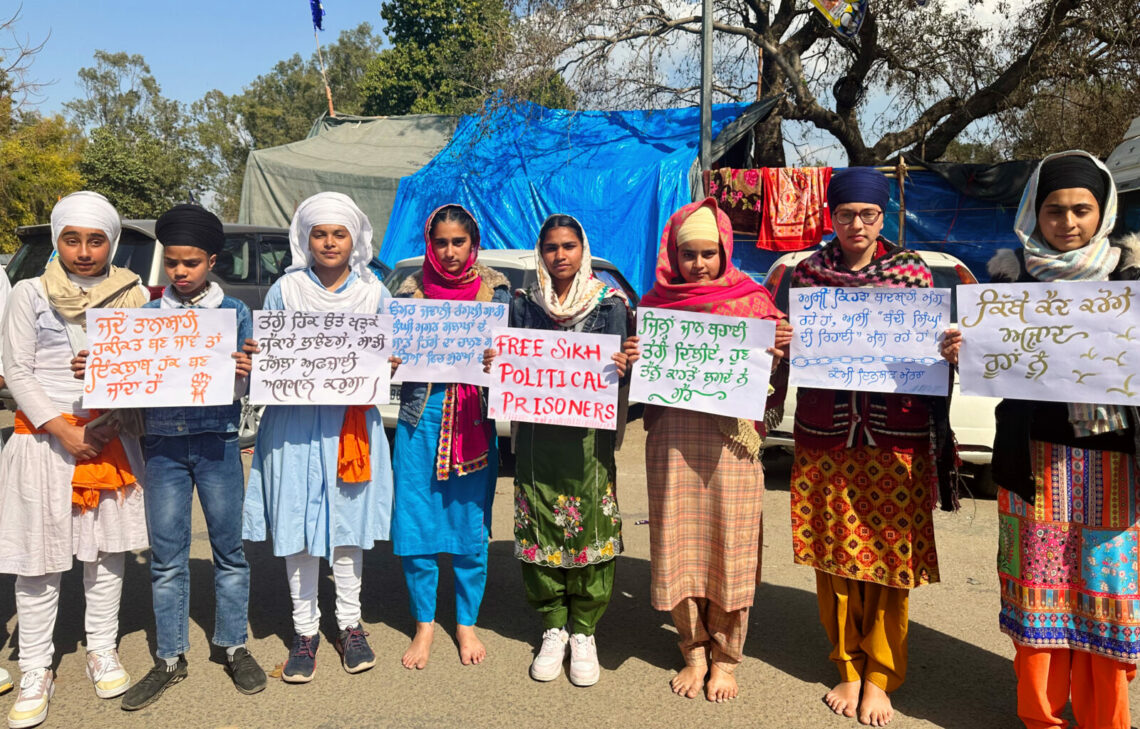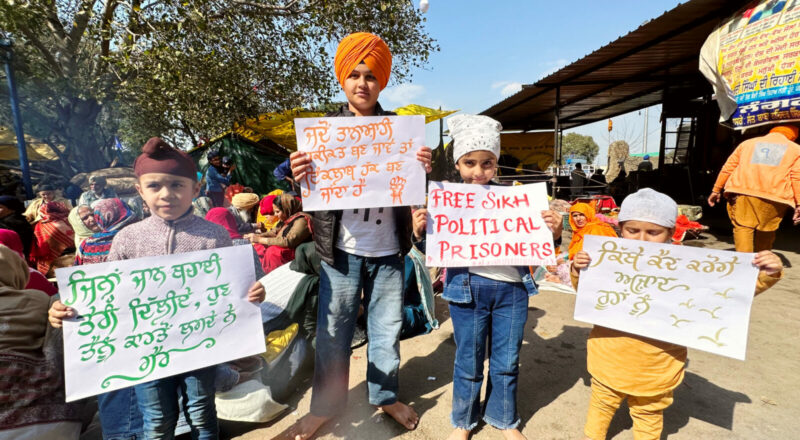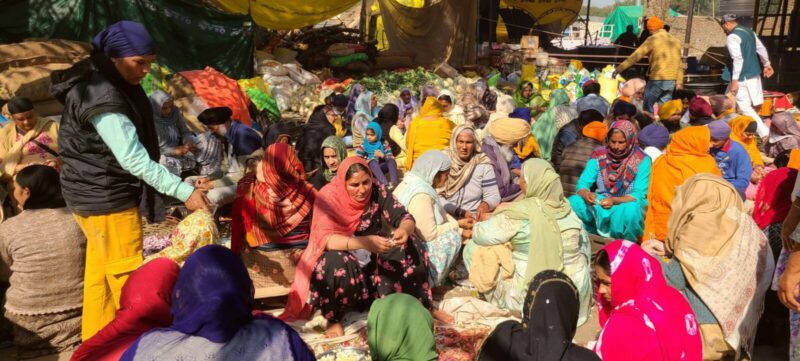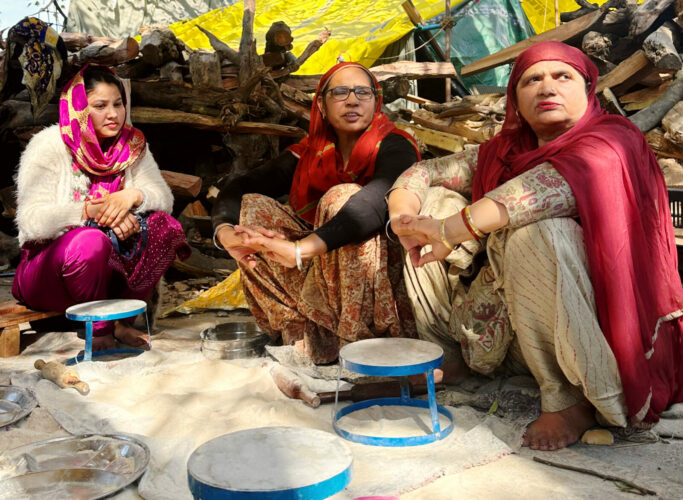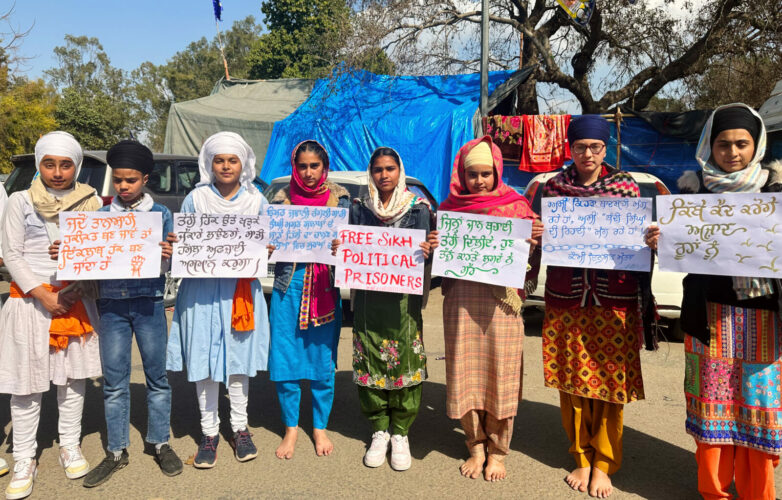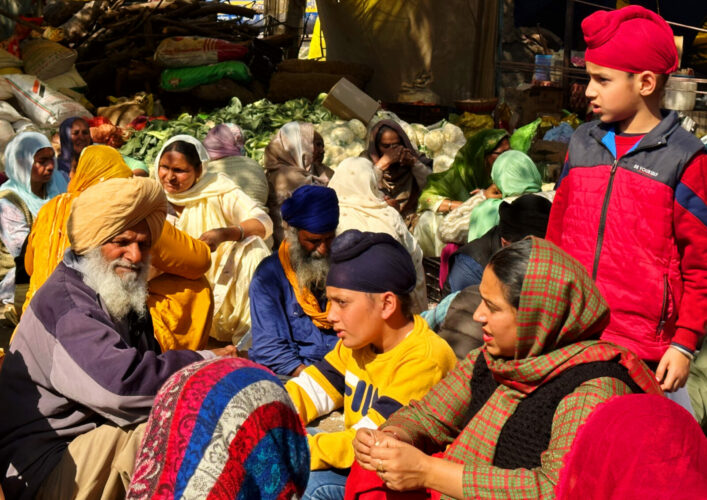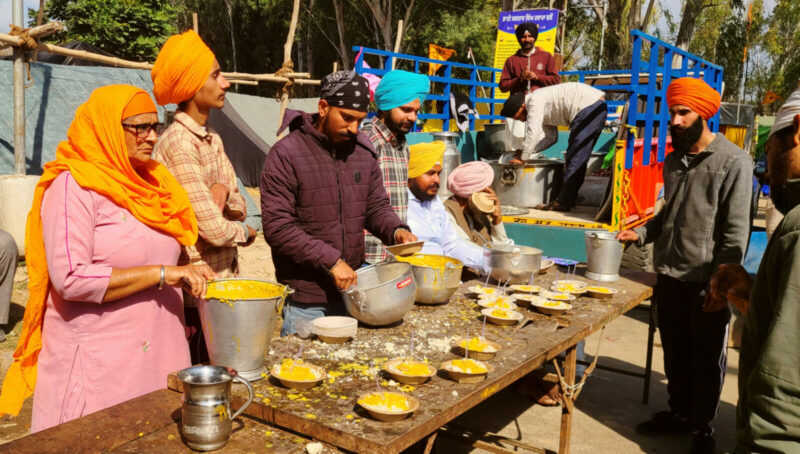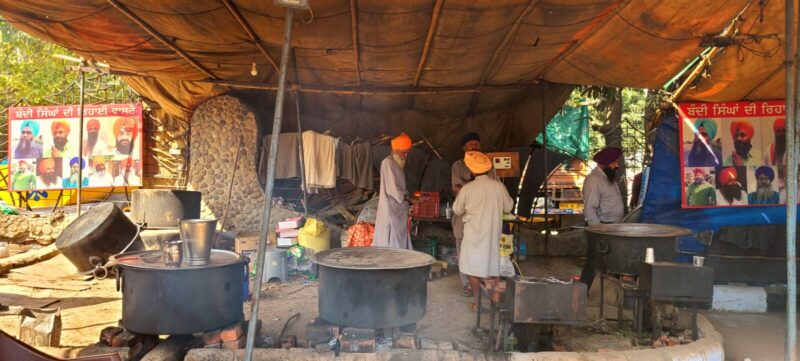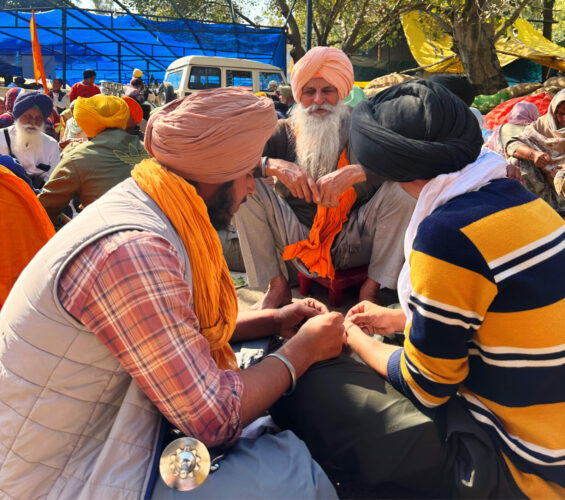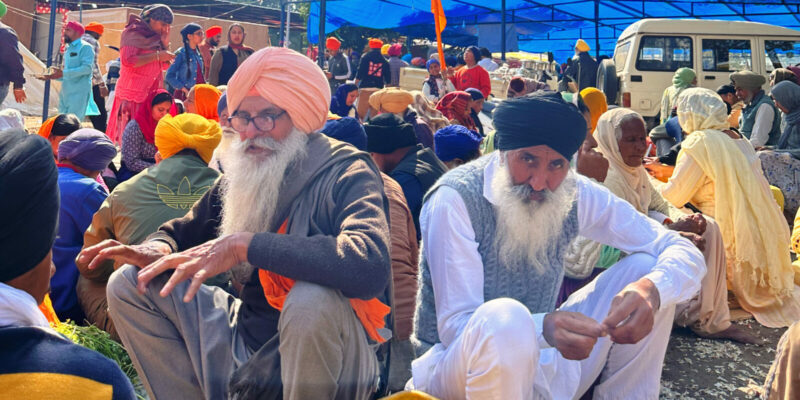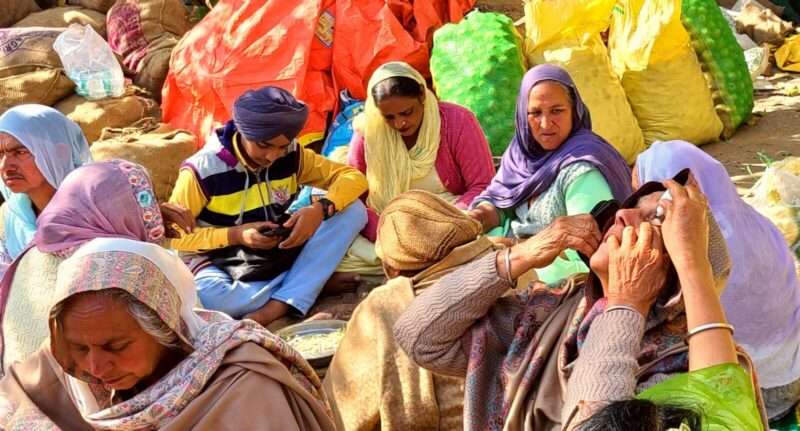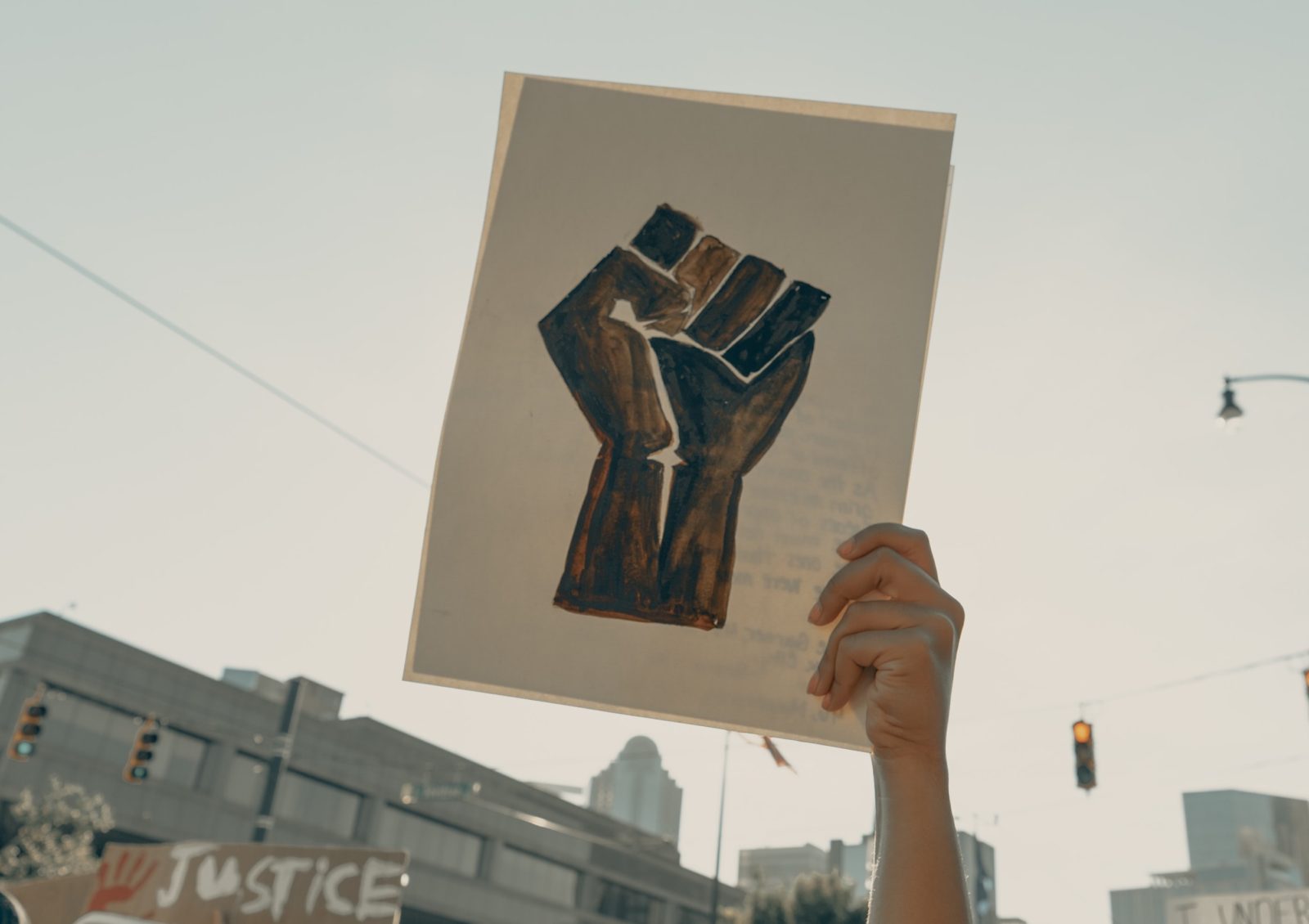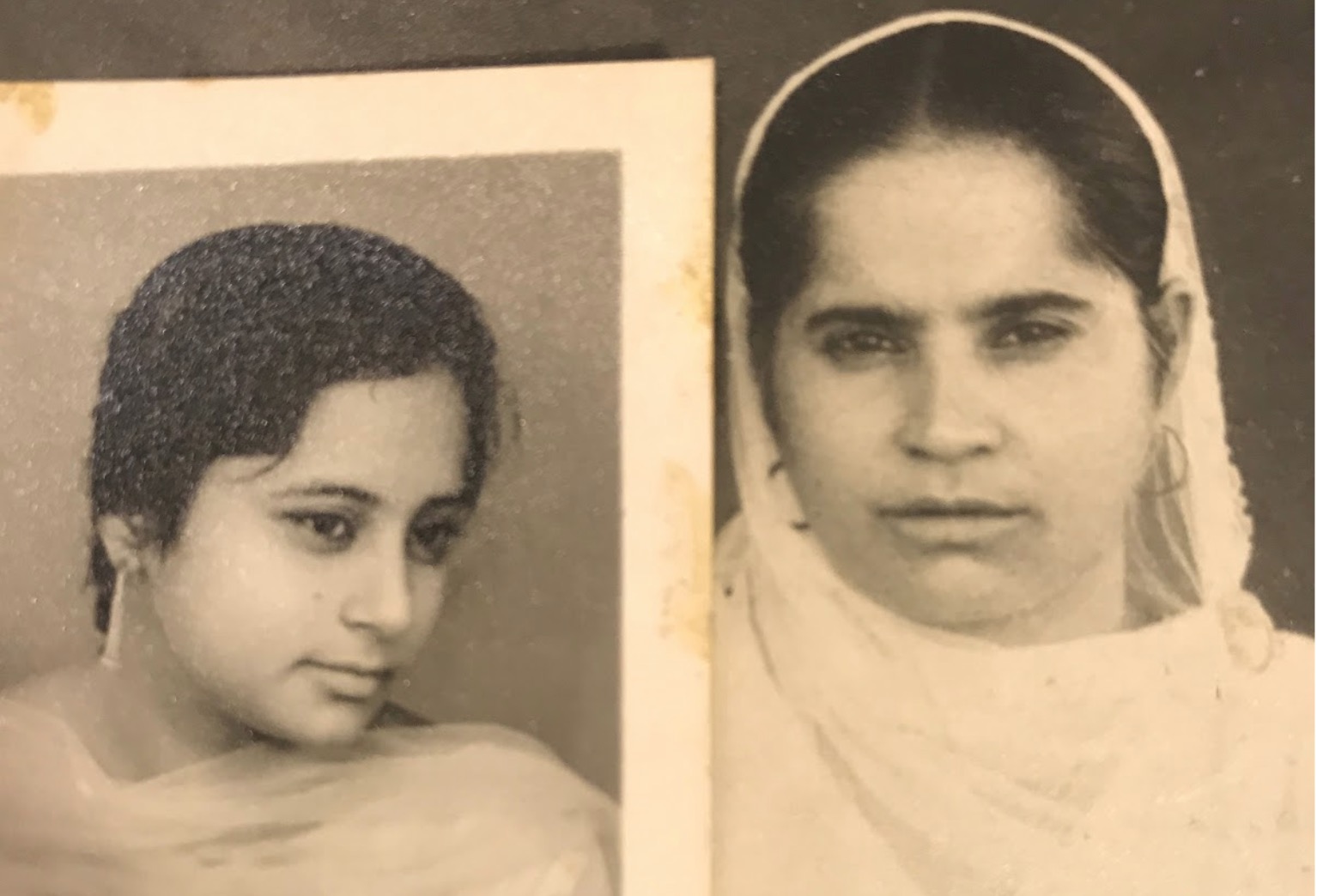By Japleen kaur
Content note: Mentions of violence and sexual assault.
Introduction by Lakhpreet Kaur: In Punjab, India on January 7, 2023, with the name of Qaumi Insaaf Morcha (Sikh Nation Justice Protest) various Sikh organizations started a protest for the release of Sikh prisoners still in jail who have completed their sentences. The issue of their release has been a central issue for Punjabis for some time but recently, political parties and organizations have highlighted the matter.
The Shiromani Gurdwara Parbandhak Committee has formed a list of 21 Sikh prisoners who are yet to be released. However, the focus of the Qaumi Insaaf Morcha is on nine prisoners who have already completed their sentences – which were anywhere from 15 to 31 years in jail.
Delhi based writer and creative, Japleen Kaur, shares a perspective about the protest and writes about the involvement of Kaurs:
In the saga of Sikhi, Kaurs have held leadership roles numerous times and fought against injustice. Apart from their active role, great Kaurs have also contributed in the background too by motivating their sons, husbands, fathers and brothers to raise their voices against oppression.
Inspired by 1984 Activist Kaur
Present at the morcha is Bibi Ravinder Kaur, hails from Shahpur Goraya, Gurdaspur District, where she runs a tea stall. She narrated the inspiring story of Bibi Surinder Kaur. Bibi Surinder Kaur was the finance of Sardar Satwant Singh, one of the two bodyguards of Indira Gandhi, who assassinated her on 31 October 1984 for her role in The Battle of Amritsar (aka Operation Bluestar) .
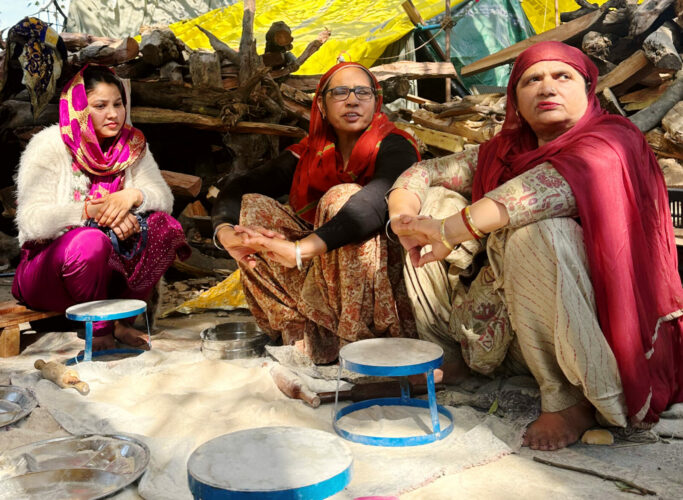
Notwithstanding the unfortunate circumstances of imprisonment and execution of Satwant Singh, Bibi Surinder Kaur did wedding lavan with Sardar Satwant Singh’s photograph, despite her father’s objections. Bibi Surinder Kaur she did it to upkeep the honor of Panth and Pagri. Even knowing the ultimate sad reality of having to live her life without meeting Sardar Satwant Singh even once, she chose to marry and live as his widow.
Bibi Ravinder Kaur had tears in her eyes while narrating this story as she personally knew the families of Bibi Surdiner Kaur and Sardar Satwant Singh (both lived in neighboring villages). “In a cruel twist of destiny, as if it was pre-ordained, Surinder Kaur met her end due to cancer exactly 12 years after Satwant met his,” recalled Bibi Ravinder Kaur. “While Satwant chose weapons, Surinder chose stoic resolve, so appropriate and reflective of the Sikh yinyang!”
Escaped the British to Be Killed by India
Another woman from Ambala, requesting anonymity, said that, while the entire world is aware of the magnificent Sikh history, the situation in the present would have been different had the Sikh leadership been more tuned in to the “needs of the community” and had cared more for the “issues and demands of the Panth,” rather than being “more loyal to their own political ambitions and self-interests”. Despite everything, she added, the community has always been at the forefront of the fight against injustice. She exclaimed with zeal a poem:
“ਸਾਡੀ ਪਿੱਠ ਤੇ ਖੜਾ ਇਤਿਹਾਸ ਸਾਡਾ,
ਸਾਨੂੰ ਮਾਨ ਹੈ ਲਹੂ ਦੇ ਰੰਗ ਉੱਤੇ,
ਅੱਸੀ ਜਾਣਦੇ ਕਿੰਜ ਕੁਰਬਾਨ ਹੋਣਾ,
ਆਪਣੇ ਗੁਰੂ ਦੀ ਇੱਕ ਮੰਗ ਉੱਤੇ।”
The power of our history is behind us
We are proud of the color of the blood (because we have spilled so much blood, we are proud of that color).
We know how to give sacrifice,
upong the Guru’s request. (Referring to the Panj Piare giving their heads to Guru Gobind Singh Ji)
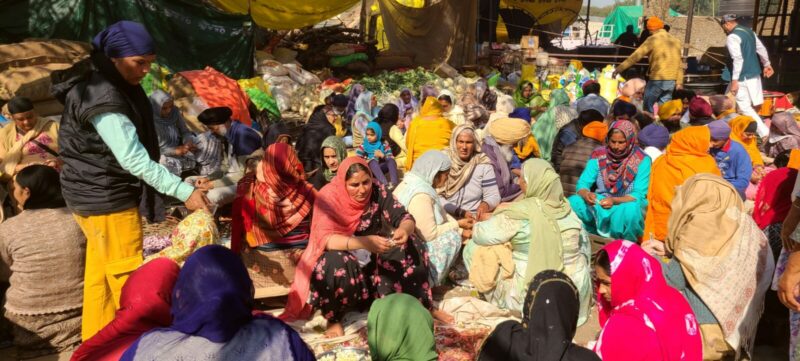
The Ambala Kaur continued, “In a cruel twist of fate, my mothers’s elder brother, Satnaam Singh, narrowly escaped the Jallianwala Bagh Massacre as a young boy, only to die at Darbar Sahib 65 years later [in the 1984 Battle of Amritsar aka Operation Blue Star] at the hands of Indian Army”. She wondered, “What does it say about our society that Satnaam Singh’s death might have received more recognition had he died at the hands of the British instead of Indians?”
She stated that the protestor’s position is unequivocal: Bandi Singhs who have served their terms should be released.
“This is not the time to pick up swords; it is time to re-write the Zafarnamas”
Students from Miri Piri Academy of Zirakpur were also at the morcha. The majority of the Kaurs in the group were young high school or college students and explained they came to the rally with their teachers. One of them stated, “We are well aware of our rights and that the illegal incarceration of Bandhi Singhs is a violation of human rights.”
When their teacher was asked, she replied,
ਇਹ ਵੇਲਾ ਤੇਗਾਂ ਚੁੱਕਣ ਦਾ ਨਹੀਂ, ਫੇਰ ਤੋਂ ਜ਼ਫਰਨਾਮਿਆਂ ਨੂੰ ਲਿੱਖਣ ਦਾ ਹੈ ॥
This is not the time to pick up swords; it is time to re-write the Zafarnamas.
“That’s why we have created these posters so that all the passersby can understand our motives,” she said. “[We] have a war against the system, so we should fight systematically. We all are children of Dasam Padshah, Guru Gobind Singh Ji. We understand that not every time can a war be won with weapon because wars are won by stronger minds, not better weapons. So this time, we are protesting here peacefully.”
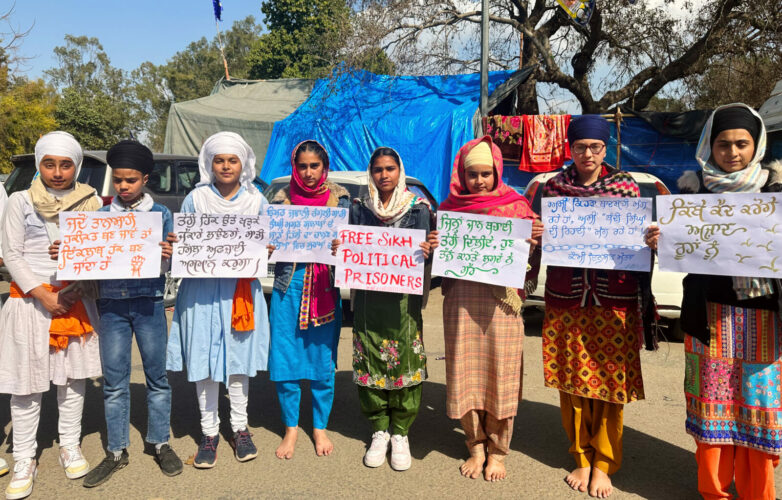
She further clarified that this does not mean that they are not capable of physically fighting (the students learn both kirtan and gatka). All the Nihang Singhs are here fully equipped with their shastars. But right now the issue needs to be articulated and spread among the masses so that more people can join the protest and pressure the government so that the illegally detained Bandhi Singhs can get justice.
Mother Brings Children out of a Responsibility to Sikhi
While doing langar seva, Satbir Kaur stated that she had come to the morcha with her two sons. She is a teacher and lives close to Chandigarh. She stated that she takes her children to the morcha every day after school so that, “they can witness history being made.” She stated that it is the “responsibility of mothers to teach their children about their virsa (heritage).” She also said that her children understand that they are here to fight for justice for the Bandhi Singhs, and that the release of the captive Singhs is not just a demand, but “also a constitutional and fundamental right”. She went on to say that the Sikh prisoners, being men, are often the sole breadwinner in the family. When they are imprisoned, the entire family suffers.
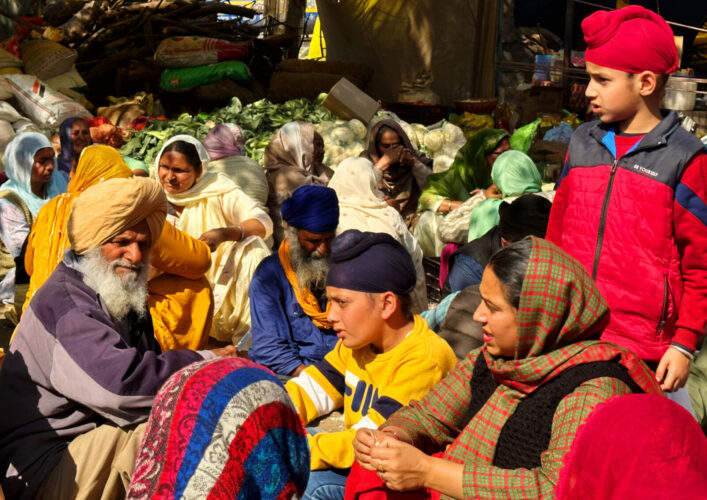
Satbir Kaur has a personal connection to the morcah; her maternal uncle was died at the Battle of Amritsar (Operatoin Blue Star Operation) in 1984. He went to the Darbar Sahib for Gurpurab but was killed by the police, despite the fact that he was innocent.
Satbir Kaur added that several other women, whom she has since become acquainted with, were also present at the morcha. She stated that she wants to encourage people to join her children in the morcha because children are our future generation and “they must see the fervor with which their elders fight for justice.” According to her, “just classroom instruction is insufficient,” and children are needed to undertake, “practicals in order to learn and retain.” Similarly, in this situation, “parents should bring their children to protest locations and teach them” about the brave Sikhs of history in order to instill zeal in them.
Another banner towards the front references Sikh history:
ਤੁਸੀਂ ਹੋ ਉਸ ਕੌਮ ਦੇ ਵਾਰਿਸ, ਜੋ ਕੰਬੇ ਨਾ ਡੋਲੇ
ਦੇਗਾਂ ਦੇ ਵਿੱਚ ਉਬਲਦੇ ਵੀ, ਸਤਨਾਮ ਹੀ ਬੋਲੇ ।
You are legacy of those people who did not shake or lose their faith.
While being boiled in vats, they continued to recite “Satnam”.
When asked about her motivation for attending the protest, Satbir Kaur urged everyone, from far and wide, to join in order for the protestors’ voices to be heard by the Central Government and for the inequalities occurring with Sikh prisoners to stop.
She stated that the community is enraged, particularly because the “government frequently has contradictory standards for Sikh prisoners versus non-Sikhs. Balwant Singh Rajoana had been detained for 27 years and was recently granted parole for just an hour to attend his father’s death rites, whereas Ram Raheem, who was convicted of rape, has been granted parole multiple times”.
Many Sikh activists and organizations have requested the government multiple times for the release of prisoners who had been charged under TADA, completed their sentences, and whose release was not perceived to be prejudicial to the peace and security of Punjab or the country. The cases on these prisoners were lodged in different jails in the country for and charged under TADA for their actions during the 1980s and 1990s Sikh Rights Movement and . militancy period in Punjab.
Protestors Draw on Sikh Values
Bibi Paramjeet Kaur from Fatehgarh shared the committee of her local gurdwara had arranged a bus to take the villagers to Mohali to participate in the morcha.
On what prompted her to take up cudgels on behalf of the Bandi Singhs, she said, “Our village actively participated in the farmers’ agitation against Centre’s farm laws. Now, the issue of Sikh prisoners is becoming an emotive issue for us. We just want them released. We will just take the peaceful way. When they can grant parole to Dera Sacha Sauda Chief Ram Rahim so frequently, why keep these Sikh prisoners behind bars? Especially when a few of them are old and others are not keeping well.”
For Paramjeet Kaur, it was the philosophy of Sikh Gurus — “to stand up for the weak and fight for justice ” — that prompted her to join the protestors. “I would go for anyone. Guru Sahib says we should fight for such people. It does not matter if they are Sikhs, Hindus, Muslims or belonging to any faith across the globe.”
She further informed that youngsters, as well as aged people, like her, from her village regularly attend the morcha. All of them participate here in different sevas, like preparation langar or washing the clothes of protestors. Also babe (old men) recites stories of gallant Sikh warriors to the youngsters all the time, which motivates them to perform seva more enthusiastically.
Bibi Paramjeet Kaur also told us about another older Bibi, Bibi Ram Kaur, from her village who lost her husband in 1984 anti-Sikh pogroms, and her two brothers were detained unlawfully for some time in a dubious case. Bibi Paramjeet Kaur also mentioned that Bibi Ram Kaur is ill nowadays and has recently undergone an eye treatment. Despite being stopped by her family due to her health issues, she is adamant to be here as she said she can understand the dukh (pain) of other women whose relatives are languishing in jails.
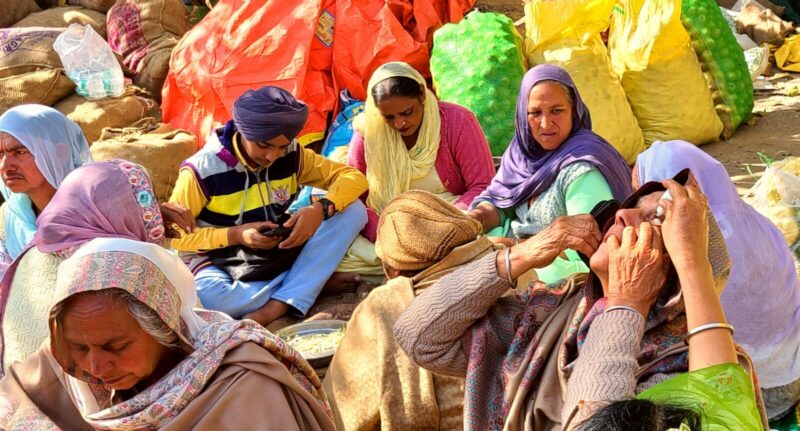
Justice and Equality – an ongoing struggle in India
The issue of Sikh political prisoners in India is a complex one, with deep roots in the country’s history and politics. However, it is also an issue that has profound implications for human rights and democracy in India. The protests for the release of Sikh prisoners are a testament to the resilience and determination of the Sikh community in India, and they serve as a reminder of the ongoing struggle for justice and equality in the country.
Personally, I beleive that all justice-loving people should feel for the agony of the Sikh prisoners who hav completed their sentences but have not yet been released. If you can’t physically be present present at the protest sites, people can talk and write on platforms to spread the issue far and wide, and fast, and further build support for relief to the suffering Sikh prisoners. The diaspora may also keep the Bandi Singhs in their prayers and wishes. Financial contributions, if so desired, may also be sent to assist in solidarity with the protesters.
Let’s hope that both parties sit down peacefully and resolve the issue.
About Japleen Kaur

Japleen Kaur is a Delhi University psychology graduate. She expresses herself as an amateur photographer, Sikh activist and freelance writer. She is an articulate young woman, and is currently also enrolled at Alliance Francaise de Delhi, for her major in French language. A woman with liberal thinking, gifted with her pen alongside a vivid sense of imagination, she constantly endeavors to do justice to her creative oeuvre. Thorough in her work, Japleen is a bit twisted in being a quality fanatic.

